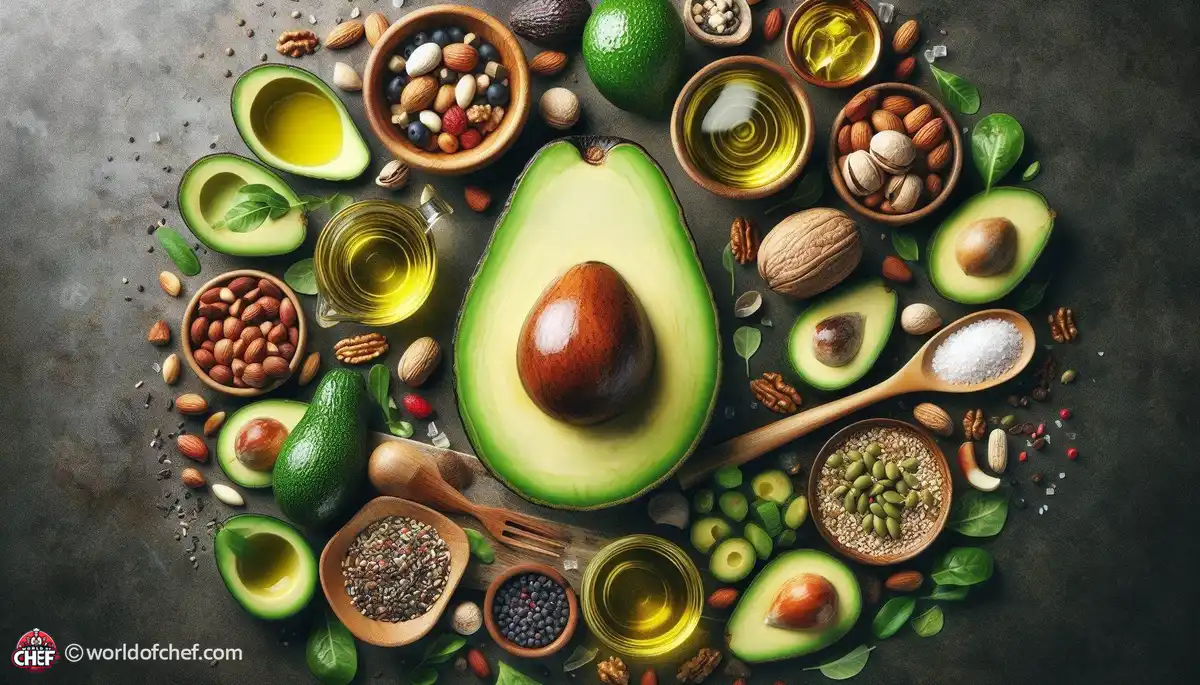
Dinner Delights: High-Fiber Recipes for Every Palate
Clarence Guido - Oct 7, 2024 - 7 min read


Avocado is the creamy green fruit originating in Central America that has had a lot of hype within the last few years. Once a luxury product, avocados are nowadays a staple in most diets around the globe. What makes avocados truly special? Let's plunge into their nutritional profile to see if they are the real deal "superfoods."
Avocados are rich in healthier fats, majorly comprising monounsaturated fats, providing numerous Health Benefits. Besides this healthier fat, the fruit contains other essential nutrients like fiber, vitamins, and minerals. A large avocado is packed with most of the essential vitamins-C, E, K, B-6, folate, potassium, and magnesium, which play a different role in ensuring overall fitness.
Healthy fats are a necessary component of your diet. What are Healthy Fats? Healthy fats in the diet provide a high-density source of energy as well as acting as basic structural components of cell membranes and hormones. While consumption of saturated and trans unhealthy fats has been linked with adverse health outcomes, certain monounsaturated and polyunsaturated fats have also been found to contribute in positive ways to heart health and inflammation, for instance, those in avocados.
Healthy fats may bring a host of benefits to your diet. Healthy fats reduce the LDL levels, also called bad cholesterol, and increase the HDL levels, also called good cholesterol. This would dramatically reduce the risk of heart disease. Healthy fats play a role in the regulation of blood sugar levels, causing satiety, and supporting brain function. Thus, incorporation of healthy fat sources like avocados in your meals will definitely contribute to overall health and well-being.
Avocados are very rich in monounsaturated fats, particularly oleic acid. Oleic acid is also a fatty acid that aids in the protection of the heart. Studies have shown that oleic acid may reduce inflammation and improve cholesterol, hence preventing many cardiovascular diseases, including heart attacks and strokes. Inclusion of avocados in your diet will help protect your heart and prevent other chronic conditions.
Although avocados are not as rich in omega-3 fatty acids as Fatty Fish or flaxseeds, they do contain a small amount of those beneficial fats. Omega-3s are important to anti-inflammatory action and play a crucial role in protecting the brain, so a good intake of these will benefit anyone's diet. Using avocados and other foods that are higher in omega-3 can make sure you get sufficient.
One of the excellent characteristics of avocados is that they can be adapted in a wide manner while cooking. There are spreads and dips, salads, and smoothies-one just cannot count how avocados can be put in use. They do bring out the richness, coupled with the depth needed by any recipe because their creaminess and mild flavors contribute to the delicious dish to be made.
Avocados can also be used as a healthier substitute for less nutritious ingredients. For example, mashed avocado can replace mayonnaise or butter in sandwiches and wraps to reduce saturated fat intake while adding creaminess. Similarly, avocado slices can be used instead of cheese or sour cream on tacos and nachos, providing a lighter, plant-based option.
Avocados are meant to be enjoyed at ripeness. It will just require gentle pressure on the fruit to tell whether or not it is ripe. Some would say that there is a better way still in telling if it's ripe: checking the colored flesh when you peel off the thin stem at top; that is, easy to come off so inside flesh does show some green when peeled off.
The storage and preparation of avocados should be done correctly so that the nutritional quality can be maintained. In this case, avocados can be kept at room temperature until they ripen for consumption and transferred to the refrigerator for storage in case they remain unused. While preparing avocados, they should not be subjected to too much heat or cooked for long since their healthy fats and other nutrients may break down.
Avocados have many health benefits, but they must be consumed in moderation since they are high-calorie. One medium avocado has about 200 calories and 20 grams of fat, so take into consideration the portions you consume if you are on a diet. Half or quarter of an avocado added to a meal can give it flavor and nutrients without excess calories.
To enjoy avocados with their full nutritional powers, add them to an adequately balanced diet of fruits, vegetables, whole grains, and lean proteins. Mixing avocados with nutrient-dense foods means there is an opportunity to achieve nutrient-rich meals to fill all needs. Enjoy various Flavor Combinations with avocados and cooking methods to determine your favourite way of having it all in sync with a healthy lifestyle.
Conclusion In a nutshell, avocados are full of healthy fats and have various other nutritional benefits. Good content of monounsaturated fats and wide range of vitamins, minerals, and fiber make them a great addition to any diet. Whether spread on toast, mixed into smoothies, or sliced onto salads, avocados are the best way to enjoy and take care of your body overall. So go ahead and indulge in the good taste of avocados with their green goodness.

Clarence Guido - Oct 7, 2024 - 7 min read

Lydia Timmerman - Oct 6, 2024 - 6 min read

Wayne Tobar - Oct 4, 2024 - 8 min read

Harry Puga - Oct 3, 2024 - 9 min read